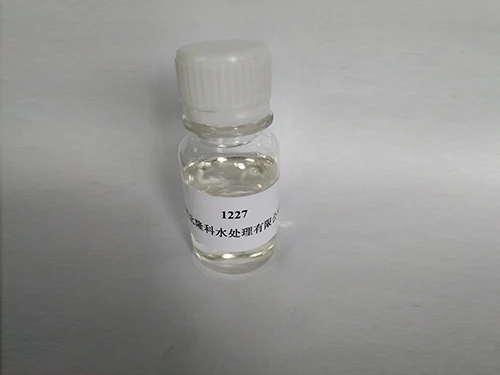Scaling and Corrosion Prevention Solutions for Cooling Tower Efficiency and Longevity
Scale and Corrosion Inhibitors for Cooling Towers
Cooling towers play a critical role in various industrial processes, including power generation, petroleum refining, and HVAC systems. They are designed to dissipate heat from the water used in these processes, ensuring optimal operational efficiency. However, the formation of scale and corrosion within cooling towers can significantly hinder their performance and lifespan. Therefore, the use of scale and corrosion inhibitors is essential for maintaining the integrity and efficiency of cooling systems.
Understanding Scale and Corrosion
Scale is primarily composed of mineral deposits that precipitate from the water used in cooling towers. Common minerals include calcium carbonate, calcium sulfate, and magnesium silicate. When water evaporates in the cooling process, the concentration of these minerals increases, leading to their crystallization and subsequent deposit formation within the system. Scale buildup can severely impair heat exchange efficiency, leading to increased energy consumption and costly repairs.
Corrosion, on the other hand, involves the degradation of metal components due to chemical reactions with water and atmospheric elements. The primary factors contributing to corrosion in cooling towers include oxygen, pH levels, and the presence of salts. Corrosion not only compromises the structural integrity of equipment but also leads to the release of metal ions into the water system, which can further exacerbate scaling problems.
The Role of Inhibitors
scale and corrosion inhibitor for cooling tower

To combat both scale and corrosion, cooling tower operators often deploy specialized chemical inhibitors. These inhibitors are designed to prevent the deposition of scale-forming minerals and to protect the metal surfaces from corrosion. Scale inhibitors work by interrupting the crystallization process of minerals, keeping them in a soluble form, thus preventing their accumulation on surfaces. Common scale inhibitors include phosphonates, polyacrylates, and organophosphates.
Corrosion inhibitors function by forming a protective layer on metal surfaces, which reduces the direct contact between the metal and corrosive agents in the water. These inhibitors fall into several categories, including film-forming inhibitors, anodic inhibitors, and cathodic inhibitors. By employing a combination of scale and corrosion inhibitors, operators can create a comprehensive protective strategy for their cooling systems.
Benefits of Using Inhibitors
The use of scale and corrosion inhibitors offers numerous advantages. Firstly, they help maintain system efficiency by ensuring optimal heat exchange, which in turn reduces energy consumption and operating costs. Secondly, by preventing corrosion, inhibitors extend the lifespan of cooling tower components, leading to fewer breakdowns and decreased maintenance expenses. Moreover, the use of these chemicals can improve water management by minimizing blowdown rates and enhancing water reuse, thereby promoting sustainability.
Conclusion
In conclusion, the effective management of scale and corrosion in cooling towers is essential for the reliable and efficient operation of industrial systems. The application of scale and corrosion inhibitors plays a pivotal role in achieving this goal. By selecting the appropriate inhibitors and maintaining optimal water quality, cooling tower operators can safeguard their systems against the detrimental effects of scale and corrosion, ensuring long-term performance and cost-effectiveness. As industries increasingly strive for efficiency and sustainability, the importance of these chemical treatments will only continue to grow.
-
Water Treatment with Flocculant Water TreatmentNewsJun.12,2025
-
Polymaleic AnhydrideNewsJun.12,2025
-
Polyaspartic AcidNewsJun.12,2025
-
Enhance Industrial Processes with IsothiazolinonesNewsJun.12,2025
-
Enhance Industrial Processes with PBTCA SolutionsNewsJun.12,2025
-
Dodecyldimethylbenzylammonium Chloride SolutionsNewsJun.12,2025





